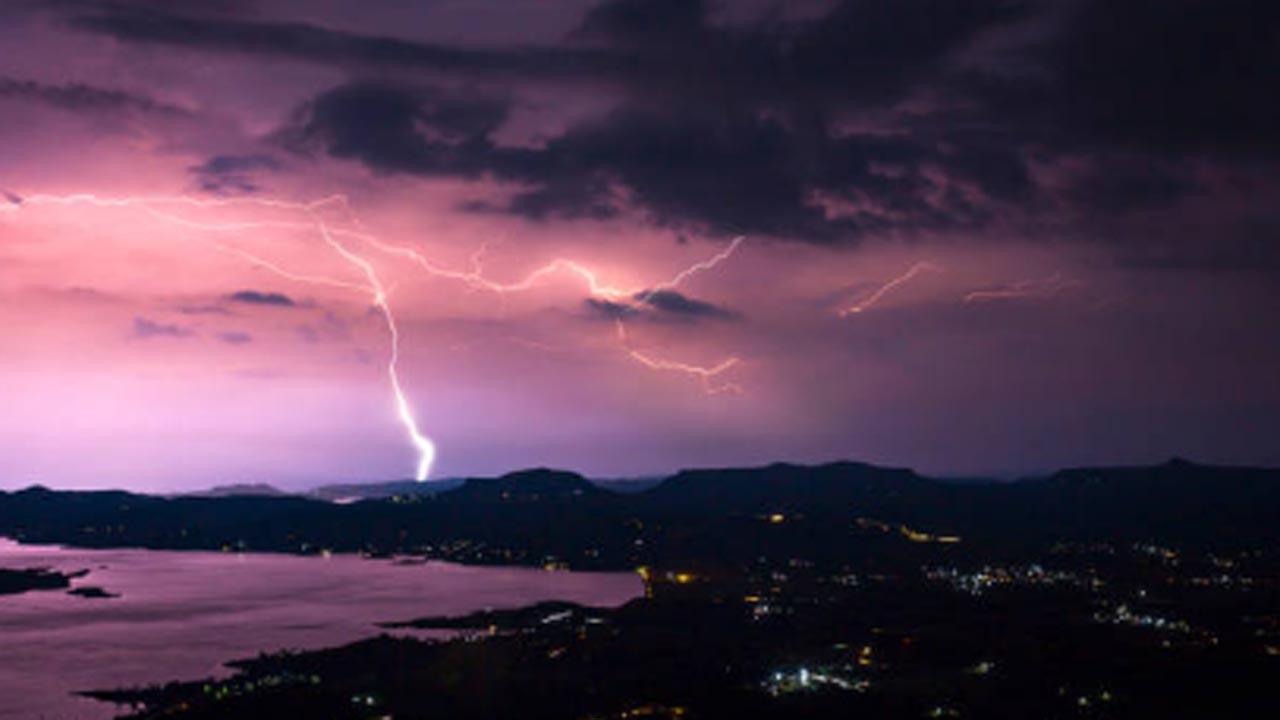During the year 2021-2022, Goa witnessed a very high rise in lightning strikes, up to 338 per cent, followed by Pudducherry at 80.77 per cent, Himachal Pradesh at 66.27 per cent, Karnataka 68.74 per cent, and Jammu & Kashmir 49.86 per cent

Image for representational purpose only. Photo: istock
Lightning is increasingly becoming a troubling natural phenomenon in India over the years. The Annual Lightning Report 2021-22 that was released on June 16 has indicated the changing trend in the last one year. The report has also listed states that witnessed increase and decrease in lightning strikes.
During the year 2021-2022, Goa witnessed a very high rise in lightning strikes, up to 338 per cent, followed by Pudducherry at 80.77 per cent, Himachal Pradesh at 66.27 per cent, Karnataka 68.74 per cent, and Jammu & Kashmir 49.86 per cent.
Chandigarh and Sikkim showed maximum reduction in Cloud-to-Ground strikes by 40 per cent and 38.44 per cent, respectively. This was followed by Haryana 26.67 per cent, Bihar 23.4 per cent, Jharkhand 25.05 per cent, and Odisha 25.57 per cent.
The Annual Lightning Report 2021-22 was released by the Lightning Resilient India Campaign, a joint initiative of the Climate Resilient Observing Systems Promotion Council (CROPC) and the India Meteorological Department (IMD), Ministry of Earth Sciences.
In general, Madhya Pradesh continued to be at the top state with highest lightning strikes followed by Maharashtra and Chhattisgarh having witnessed more strikes compared to Odisha. West Bengal, Jharkhand, Karnataka, Uttar Pradesh, Tamil Nadu, Bihar, Andhra Pradesh, Gujarat and Rajasthan were found to witness more than two lakh Cloud-to-Ground lightning strikes.
The IMD has an app called 'Damini' that sends out early warning to the mobile owner as per the location of the device. "The need of the hour is to enhance the appeal for far more capacity building programmes in view of the continued deaths," IMD director General, Meteorology, Mrutyunjay Mohapatra said at the report release.
Also Read: Overall warming of minimum temperatures to increase in northeast Indian states: Study
ADVERTISEMENT
This story has been sourced from a third party syndicated feed, agencies. Mid-day accepts no responsibility or liability for its dependability, trustworthiness, reliability and data of the text. Mid-day management/mid-day.com reserves the sole right to alter, delete or remove (without notice) the content in its absolute discretion for any reason whatsoever
 Subscribe today by clicking the link and stay updated with the latest news!" Click here!
Subscribe today by clicking the link and stay updated with the latest news!" Click here!







